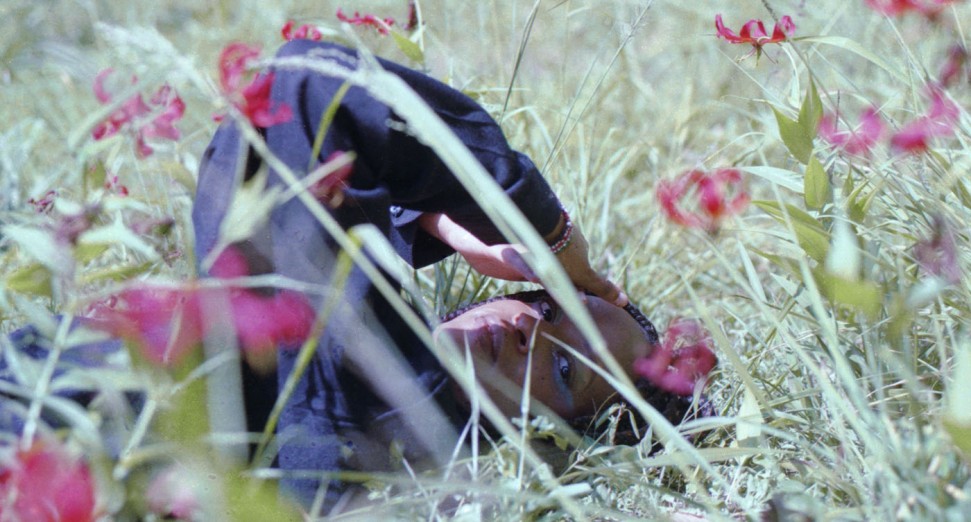
Laufey Snow White Lyrics Meaning and Why They Feel So Honest About Self-Image
Photographer credit: Emma Summerton
Laufey has said that Snow White is about “the never ending chase for perfection that comes with being a woman.” She recorded it for her new album A Matter of Time, which comes out August 22 and was produced with Spencer Stewart and Aaron Dessner.
She’s been playing it on tour this year, including sold-out shows at the Hollywood Bowl and Madison Square Garden, and it’s already one of those songs that listeners stop and talk about because of how directly it speaks to body image and self-worth. Laufey explained in interviews that this one came from a moment when she felt like her looks and her body mattered more than her brain, and that is not something she tried to soften in the lyrics. In fact, she said she didn’t want to end it with a “but you’re beautiful and you’ll be OK” ribbon, because that wouldn’t have been honest.
When I sit down with a song like this, I can’t help but bring my own background in English literature and creative writing into the mix. I like using songs as a way to dig into bigger ideas, and this one is a perfect excuse to stretch into some literary comparisons. Laufey uses the figure of Snow White in a way that’s closer to how modern fiction and reimagined fairy tales use her — less a sweet heroine, more a symbol of an ideal that is impossible to match but impossible to ignore.
The video for the song was shot entirely in Iceland by her twin sister Junia Lin, which adds another layer of visual storytelling to the track. My goal here isn’t to give you a final, perfect explanation of Snow White. These are my own opinions and takeaways. But I do want to pull the song apart and see how its plainspoken lines connect to older stories, recurring archetypes, and the emotional truths they’ve been carrying for a long time.
“Can’t help but notice all of the ways in which I failed myself, I failed the world all the same”
I believe this line shows the singer feeling failure in every direction. She feels she has not lived up to her own hopes. She also feels she has not lived up to what the world wanted from her. That is a lot of weight to carry. Adrienne Rich in Snapshots of a Daughter-in-Law writes, “she shaves her legs until they gleam like petrified mammoth-tusk.” This shows how women can feel they must do endless work to meet a standard. The poem and the lyric both show how the body becomes a test you can fail. When you feel you have failed, it is like you are wrong as a person.
“I don’t think I’m pretty, it’s not up for debate / A woman’s best currency’s her body, not her brain”
Here the singer is sure about how she looks. She says there is no question about it. That tells me her mind is set and closed on this topic. She uses the word “currency” to explain beauty. This means beauty is like money. If you have it, you can trade it for things in life. Anne Sexton in Snow White and the Seven Dwarfs says, “The mirror warmed the Queen’s face and said, You are the fairest of them all.” That is the same idea: beauty as proof of value. The song takes it further by saying the brain has no value compared to the body. This makes the rule even harsher.
“The world is a sick place, at least for a girl / The people want beauty, skinny always wins”
This is the singer’s rule for life. She calls the world “sick” and says it is especially so for girls. That word “always” in “skinny always wins” tells us she sees no exceptions. Adrienne Rich in Snapshots says, “You will be alone always and then you will die.” Both lines are final and leave no door open for change. This is a rule she lives by. In Anne Sexton’s Snow White, beauty is the only way to win. The song shares that truth plainly. It does not try to make it softer or more hopeful.
“And I don’t have enough of it / I’ll never have enough of it”
This is the most hopeless moment yet. She is not just saying she does not have enough beauty now. She is saying she never will. That makes the feeling permanent. Lasky’s poems often end on hard truths without a solution. This lyric works the same way. It just accepts the lack. In the world she sees, beauty is fixed. You either have enough or you do not, and she says she does not.
“Sometimes I see her, she looks like Snow White”
Here the song brings in the “other” woman. She is given the name Snow White, which brings a lot of meaning with it. Snow White is pale, thin, and flawless in the old story. Anne Sexton’s Snow White is “as white as a bonefish.” That is a cold and sharp image. It shows beauty as pure but also lifeless. The singer sees this woman as the picture of what the world wants. This woman becomes the standard in her mind. Once she sees her, she cannot stop thinking about her.
“She’s everything I am, but my wrongs are turned to rights”
This tells us the “other” woman is not a stranger. She is like a version of the singer who has been fixed. Her flaws have been removed and replaced with perfection. Adrienne Rich says in Snapshots, “She shaves her legs, she quiets her mind.” This is about shaping yourself to fit what others want. The lyric has that same meaning. The woman in her mind is her, but without the things she thinks are bad. This makes the comparison more painful. She is losing to the “better” version of herself.
“Her body is smaller, skin is so fair”
This is where the song names the traits she envies. Smaller body. Fair skin. These are traits that are praised often in media and culture.
Sexton’s Snow White also lists these same traits. They are treated as the reason for her worth. In the song, it is the same. This is all about access. If you have these traits, you get value. If not, you are left out. The singer believes she is in the second group.
“She’s achieved everything I’ve dreamed of / And it’s all that I can think of”
This shows how the comparison takes over. The other woman’s “wins” fill her mind. She says it is all she can think about. This is obsession. Lasky’s style often shows how one thought can take over and push out everything else. The lyric is the same. It is about the way envy can control your thoughts. The dream is about having the beauty she believes matters most.
“They try to tell me, tell me I’m wrong / But mirrors tell lies to me, my mind just plays along” (repeated)
The song ends with the same words from earlier.
This is important. It means nothing has changed. Sexton’s Queen in Snow White keeps asking the mirror again and again. Rich’s speaker keeps circling back to the same doubts. Lasky’s narrator keeps returning to the same fears. The song fits with all of these. The loop is the point. The belief stays, and the singer stays inside it.
Themes, Meanings, and Main Takeaways
When Laufey talks about Snow White, she’s pretty clear about where it came from. She said it was written at a moment when she felt like her looks and her body mattered more than her brain, and she didn’t want to tie it up with a comforting line at the end because that would have been dishonest.
That’s exactly the feeling that drives Adrienne Rich’s Snapshots of a Daughter-in-Law. Rich writes about the grind of living under a checklist of ideals you never quite meet. I think of her image of a woman “shaving her legs until they gleam like petrified mammoth-tusk” and how it mirrors the exhaustion in Laufey’s opening verse — that sense of failure in both your own eyes and the eyes of the world. It’s the same root problem Rich was writing about sixty years ago: you get so used to someone else’s standards that they start to feel like facts.
Then there’s the Snow White figure itself, which is where this song’s title really starts to work. Laufey’s version isn’t the fairy-tale heroine with woodland friends. It’s closer to Anne Sexton’s retelling in Snow White and the Seven Dwarfs, where beauty is treated like a kind of social currency. Sexton describes her Snow White as “as white as a bonefish” — still perfect, but a little cold, a little lifeless. Laufey’s “other woman” has the smaller body, the fair skin, and the life the narrator dreams of. And by shooting the video in Iceland with her twin sister Junia Lin directing, Laufey gives the visuals this dreamlike polish that makes the envy underneath stand out even more. It’s like the prettier the surface gets, the sharper the bite feels.
The last thing I keep coming back to is how this song doesn’t try to break the loop it’s describing. Laufey’s doing that here too. She’s been open about how no one can talk her out of these feelings when they hit, and that’s why the chorus lands the way it does every time it comes back.
On A Matter of Time, she said she wanted to “draw out the most flawed parts of myself and look at them directly in the mirror.” Snow White is her doing exactly that — and keeping the mirror right where it is until the song fades out.



